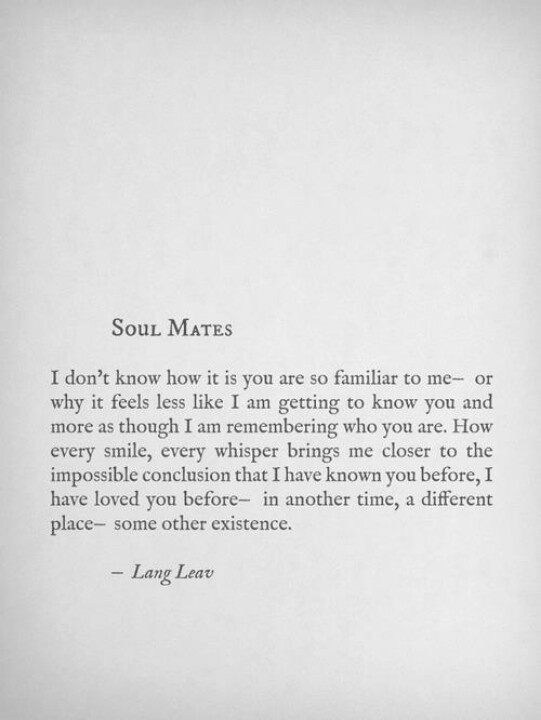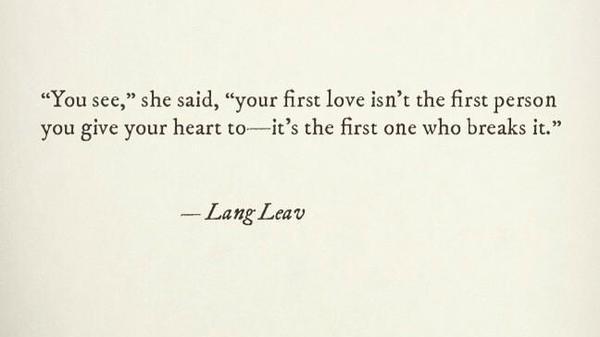Image credit: inquirer.net
Lang Leav is perhaps the only contemporary writer who has attracted such passionate divisions of opinion. More serious poets move her books to the self-help sections in book stores, while casual readers with more “literary” friends treat her work like a vice to be savoured in secret.
What Lang Leav uses is a fluid mixture of conversational language and the traditional stanza form, which makes her text accessible to anyone who might find regular poetry intimidating. Some say it’s because of this that she doesn’t write real poetry. Yet the problem with Lang Leav isn’t so much how she writes, but what she writes.

At its core, Lang Leav’s work deals in highly self-indulgent ideas that encourage shallow and sometimes dangerous behaviour. A lot of it sounds pleasantly lyrical and confessional, but doesn’t mean much when you start taking it apart.
In Soul Mates, one of her most popular pieces, she talks about the elusive circumstances of infatuation. It’s that moment when your eyes meet across a room, and you realise he’s the one. But by distilling this moment into a single verse and putting it on a page, she deliberately paints an incomplete picture.
It’s a picture of convenience; one that explores the part of love that is all desire without actually having to communicate and figure each other out. In a book, these ideas gain legitimacy. The book becomes something you can pair with a glass of wine on a cold and lonely night as you wallow in your unrequited feelings.
I say “wallow” because this is exactly what her poetry does. By describing feelings rather than explaining them, Lang Leav tells us not to think. In other words, she wants us to be superficial.
She wants us to want only those parts of life we see in music videos: The laughing, the running across rooftops, and the sudden disintegration for no apparent reason. She doesn’t want us to know or appreciate the very real things that happen in between.
More disturbingly, something like Soul Mates attempts to convince you that a mysterious “connection” is all you need for love. It convinces you that your “connection” has less to do with shared interests and mutual respect than it has to do with some strange look in each other’s eyes. It makes us think there are forces at work that are beyond control, that we do not need to take responsibility or be accountable for our own decisions.
This is the kind of thinking that keeps us in meaningless and sometimes destructive relationships. It’s the kind of view towards love that makes us say, “I don’t know what it is about her that makes me love her so much!”—things that might distract us from a more important question like, “Do I really want to be in this relationship?”
Infatuation happens to everyone, and there is plenty of poetry out there that celebrates the kind of budding romances we all experience as we grow up. But there’s something to be said of an adult that peddles such dangerous notions of love to not just teenagers, but to people of all ages. Because sooner or later, we all learn that love is complex. And the solution is not to over-simplify it like Lang Leav does, but to try to make sense of this complexity in simple terms.

Here’s another example. With fluffy notions of what things like first loves are supposed to mean, how is someone who went through an emotionally manipulative relationship going to move on? Anyone looking to her work for consolation is just going to think that that is what love is supposed to be, that love is all about being hurt and nothing more.
It doesn’t help that we’re already confused by the differing portrayals of love we encounter both on screen and in books. We’re told that love needs to be thrilling and unexplainable to be real, yet we’re also told that it has to be built on a proper foundation.
Whatever it is you believe, love certainly isn’t “suffering” or “pained silences.” All Lang Leav really does by over-selling such a narrow, hyper-romanticised and inward-looking perspective of human feeling is prevent naive readers from developing realistic attitudes towards intimacy and affection.
If I’m completely honest with myself, I’ll admit there is a time and place for Lang Leav. She reminds us to enjoy fleeting moments of pure emotion; that moment when a crush looks in your direction for the first time, or when your love is young and all you want to do is be together rather than think about opening a joint bank account. Which is completely fine.
But beyond this, her poetry is nothing but a recipe for disaster.
—
Have something to say? Email us at community@ricemedia.co.






